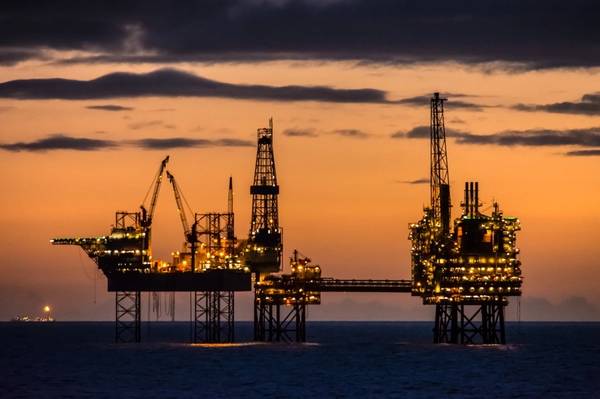
The British government should introduce a price floor to mitigate the impact of its new windfall tax on the sector as some companies struggle with reduced access to funding, executives and industry sources say.
They say the brake on capital for new supplies is at odds with the government's drive to improve domestic energy security after the Ukraine war highlighted the risk of relying on foreign supplies.
Climate campaigners, however, say renewable energy is the best way to avoid dependence on imported fossil fuel and point to record profits in the hydrocarbon industry this year.
Prime Minister Rishi Sunak's government last month announced plans to boost the Energy Profits Levy (EPL) on oil and gas companies from 25% to 35%, bringing the total taxes on the sector to 75%, one of the highest rates in the world.
The government said the levy would raise funds to help people struggling with increased living costs, largely driven by energy prices that surged after energy exporter Russia invaded Ukraine in February.
The sources and executives said the producers face a hurdle as banks cut their credit facilities by around 40% as a result of the tax changes. Oil and gas producers will meet representatives of the Treasury and Department for Business, Energy and Industrial Strategy (BEIS) on Friday to discuss the EPL, sources said.
BEIS declined to comment and the Treasury did not respond to a request for comment.
"(The tax) created a level of additional uncertainty in the debt financing market," Ithaca Energy's Executive Chairman Gilad Myerson told Reuters.
This especially hits smaller and medium-sized producers with a portfolio focused on the British North Sea, as banks base the credit they offer on the size of their yet-to-be-produced oil and gas reserves and the forecast of future energy prices.
As the tax burden on companies grows, their expected future revenue shrinks, leading banks to cut borrowing facilities, known as reserve-based lending (RBL), which are reviewed several times a year, executives and bankers said. The investment plans of smaller producers are particularly dependent on RBLs.
"This doesn't just impact people's willingness to invest but their capacity to invest," one industry source said, declining to be named. PRICE FLOOR Neither climate campaigners nor the industry are happy with the new windfall tax.
Those opposed to any use of fossil fuel, criticize the EPL for including a mechanism that allows oil and gas producers to cut their tax bill if they invest in hydrocarbon output. For the producers, one of their concerns is that the EPL does not include a price floor below which the tax will not be applicable, said Ithaca's Myerson, a point also raised by TotalEnergies and other producers.
"The lack of a definition of ‘normalized prices' unsurprisingly created an issue for debt providers modeling borrowing capacity," Myerson said. He said, however, Ithaca still intended to invest in two of the North Sea's largest undeveloped fields - the Equinor-operated Rosebank project and Ithaca's Cambo project - in which it has stakes. Benchmark Brent oil prices LCOc1 are trading above $80 a barrel, far below a spike well above $100 shortly after the Ukraine war began. Natural gas prices remain above their historical average.
Jacques Tohme, director and founder of Tailwind, a North Sea producer, said he did not object to a higher tax, but a lack of stable rules created the risk of "flight of investment" from the North Sea.
"We're happy to pay higher tax, but we need a floor of $75 to $100 a barrel above which a true windfall tax can be applied," Tohme said. Companies, including Shell and Equinor, have already said they will review their North Sea investments. France's TotalEnergies said it would cut investments in Britain by a quarter next year.
Mitch Flegg, CEO of Serica Energy also called on the government to set a price floor for the EPL, without which the basin could see a drop in investments.
"We are now considering opportunities in other countries alongside those in the UK," Flegg said.
Britain's biggest oil and gas producers https://tmsnrt.rs/3wNJsBV
UK government revenue from oil and gas sector UK government revenue from oil and gas sector https://tmsnrt.rs/3NB5I7H
North Sea spending https://tmsnrt.rs/3fY5oVu
(Reuters - Reporting by Ron Bousso; editing by Barbara Lewis)